Filter by

Creating language :integrating evolution, acquisition, and processing
A work that reveals the profound links between the evolution, acquisition, and processing of language, and proposes a new integrative framework for the language sciences.OCLC-licensed vendor bibliographic record.
- Edition
- -
- ISBN/ISSN
- 9780262334778
- Collation
- 1 online resource
- Series Title
- -
- Call Number
- -
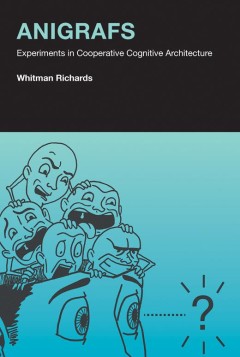
Anigrafs :experiments in cooperative cognitive architecture
"In this book, Whitman Richards offers a novel and provocative proposal for understanding decision making and human behavior. Building on Valentino Braitenberg's famous 'vehicles, ' Richards describes a collection of mental organisms that he calls 'daemons'--virtual correlates of neural modules. Daemons have favored choices and make decisions that control behaviors of the group to which they be…
- Edition
- -
- ISBN/ISSN
- 0262329115
- Collation
- 1 online resource (xiii, 148 pages) :illustrations
- Series Title
- -
- Call Number
- -

The rationality quotient :toward a test of rational thinking
How to assess critical aspects of cognitive functioning that are not measured by IQ tests: rational thinking skills.OCLC-licensed vendor bibliographic record.
- Edition
- -
- ISBN/ISSN
- 9780262336819
- Collation
- 1 online resource (xvii, 459 pages) :illustrations
- Series Title
- -
- Call Number
- -

Pathways to peace :the transformative power of children and families
"Can more peaceful childhoods promote a culture of peace? Increasing evidence from a broad range of disciplines shows that how we raise our children affects the propensity for conflict and the potential for peace within a given community. In this book, experts from a range of disciplines examine the biological and social underpinnings of child development and the importance of strengthening fam…
- Edition
- -
- ISBN/ISSN
- 9780262321181
- Collation
- 1 online resource (xx, 453 pages).
- Series Title
- -
- Call Number
- -
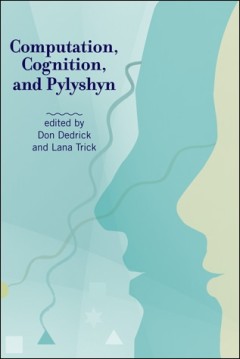
Computation, Cognition, and Pylyshyn
"A Bradford book."A collection of cutting-edge work on cognition and a celebration of a foundational figure in the field.OCLC-licensed vendor bibliographic record.
- Edition
- -
- ISBN/ISSN
- 9780262255196
- Collation
- 1 online resource (xvii, 344 pages) :illustrations
- Series Title
- -
- Call Number
- -
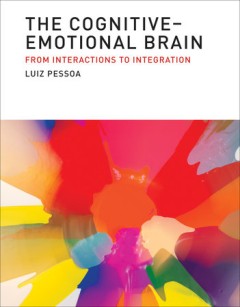
The cognitive-emotional brain: From interactions to integration
The idea that a specific brain circuit constitutes the emotional brain shaped thinking about emotion and the brain for many years. Recent behavioural, neuropsychological, neuroanatomy, and neuroimaging research, however, suggests that emotion interacts with cognition in the brain. In this book, Luiz Pessoa moves beyond the debate over functional specialization, describing the many ways that emo…
- Edition
- -
- ISBN/ISSN
- 9780262314756
- Collation
- 1 online resource (320 pages)
- Series Title
- -
- Call Number
- -
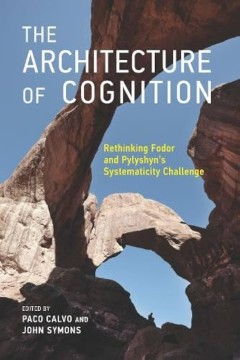
The Architecture of Cognition: Rethinking Fodor and Pylyshyn's Systematicity …
In 1988, Jerry Fodor and Zenon Pylyshyn challenged connectionist theorists to explain the systematicity of cognition. In a highly influential critical analysis of connectionism, they argued that connectionist explanations, at best, can only inform us about details of the neural substrate; explanations at the cognitive level must be classical insofar as adult human cognition is essentially syste…
- Edition
- -
- ISBN/ISSN
- 9780262322461
- Collation
- 1 online resource
- Series Title
- -
- Call Number
- -
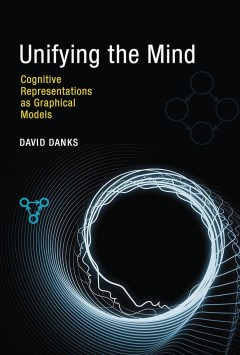
Unifying the Mind: Cognitive Representations as Graphical Models
A novel proposal that the unified nature of our cognition can be partially explained by a cognitive architecture based on graphical models.OCLC-licensed vendor bibliographic record.
- Edition
- -
- ISBN/ISSN
- 9780262325448
- Collation
- 1 online resource (xi, 287 pages)
- Series Title
- -
- Call Number
- -
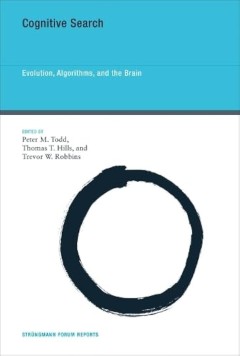
Cognitive Search: Evolution, Algorithms, and the Brain
Over a century ago, William James proposed that people search through memory much as they rummage through a house looking for lost keys. Like other animal species search space, we scour our environments for territory, food, mates, and other goals, including information. We search for items in visual scenes, for historical facts and shopping deals on internet sites, for new friends to add to our…
- Edition
- -
- ISBN/ISSN
- 9780262306003
- Collation
- 1 online resource (xi, 403 pages) :illustrations.
- Series Title
- -
- Call Number
- -
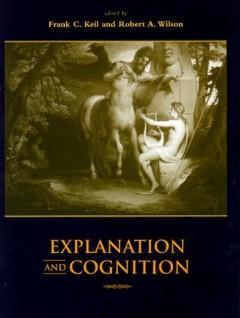
Explanation and cognition
"A Bradford book."These essays draw on work in the history and philosophy of science, the philosophy of mind and language, the development of concepts in children, conceptual change in adults, and reasoning in human and artificial systems.Explanations seem to be a large and natural part of our cognitive lives. As Frank Keil and Robert Wilson write, "When a cognitive activity is so ubiquitous th…
- Edition
- -
- ISBN/ISSN
- 9780262276917
- Collation
- 1 online resource (x, 396 pages) :illustrations
- Series Title
- -
- Call Number
- -
 Computer Science, Information & General Works
Computer Science, Information & General Works  Philosophy & Psychology
Philosophy & Psychology  Religion
Religion  Social Sciences
Social Sciences  Language
Language  Pure Science
Pure Science  Applied Sciences
Applied Sciences  Art & Recreation
Art & Recreation  Literature
Literature  History & Geography
History & Geography